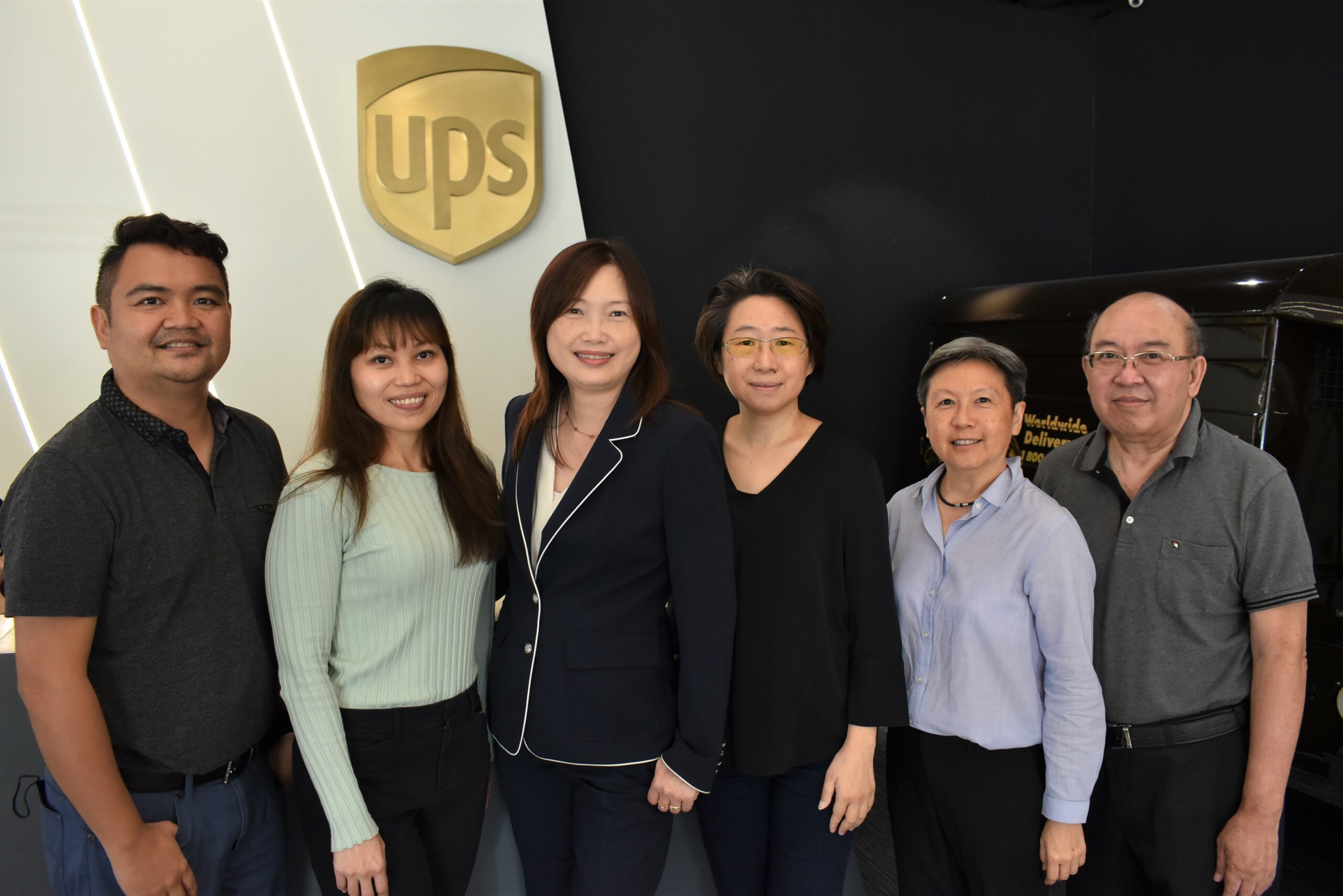HR leadership embodies workplace culture and organisational success
- Shawn Liew

Tanie Eio, Vice-President of Human Resources Business Partner APAC, UPS Asia Pacific (third from left) and her team continue to drive UPS Asia Group’s HR function to greater heights.
In a constantly changing world of work, being future-focused and having the courage to challenge, test, learn, and scale is a key quality for HR leaders.
Describing this as the ability to strategise, Tanie Eio, Vice-President of Human Resources Business Partner APAC, UPS Asia Pacific, told HRM Magazine Asia, “Understanding the key leverage to pull to thrive in a disruptive world, while creating forward-thinking strategies to overcome challenges, is a key requirement for a true HR leader.”
HR leaders should also strive to inspire by creating an environment that encourages employees to engage and express their points of view, so they feel empowered and motivated to contribute. “This also means being authentic—to guide others in your own unique way of showing concern and empathy. Employees want to know that you’re sincere about putting their and the team’s success ahead of self-interest,” Eio added.
Lastly, HR leaders need to be able to deliver by taking ownership for setting and achieving goals, and display agility in adapting to new, changing, or uncertain business environments, said Eio, proud winner of the Best HR Leader award at HR Fest Awards 2022, organised by HRM Asia as part of HR Tech Festival Asia 2022.
She declared, “This is an achievement that I proudly share with my amazing team at UPS, who have worked tirelessly to bring our HR function to where it is today, as well as the incredible support from our business leaders across various functions.”
In her role, Eio has also acted as a catalyst for cultural change in UPS, which she started by creating a strong foundation for workplace culture excellence.
This involved defining five key aspirations that UPS believes are essential to creating a best-in-class workforce: Developing future leaders, elevating employee engagement, enhancing compensation competitiveness, strengthening safety culture, and building a high-performance environment.
An employee communication and engagement programme was then launched to allow employees to understand and experience the kind of workplace UPS was building, and the instrumental role they play.
Believing that leaders are the embodiment of workplace culture, a crucial part of UPS’ strategy involves engaging leaders and making them accountable for creating a healthy and enjoyable working environment.
Eio explained, “Setting expectations of our leaders in terms of measurable KPIs such as the ‘likelihood to recommend’ metric helped keep everyone focused on a common goal. This metric indicates how likely employees are to recommend UPS as an employer to friends and family.”
With ownership and partnership playing critical roles in UPS’ human capital strategy, she devotes time to ensure all business leaders understand UPS’ workplace culture aspirations and how they can be incorporated into business strategies.
When buy-in from top leaders becomes challenging because they need to shift focus from their more immediate day-to-day objectives to prioritise culture change, Eio seeks to alleviate any concerns by helping to frame people strategies and maximisation agendas as a necessary element to drive business growth.
Highlighting the increasingly important role leaders play, she said, “How well we perform as a business ultimately boils down to our people, and people look to leaders for inspiration and guidance. Leaders need to walk-the-talk and be the role model who displays the behaviours we want to see in our people.”
“In that vein, my own credibility as a HR leader is also important. It is on me to demonstrate that I can deliver results and add value, meet the needs of the business and the employees, and am role modeling what a good leader should be. “
A good leader is also not afraid to make tough decisions, particularly those that may bring about unfamiliar change and anxiety for people.
Eio, who is also committed to building HR capacity for external organisations and Singapore’s community in her role as an active board member and chairperson of the Samaritans of Singapore’s HR Committee, urges her fellow HR professionals to persevere and believe in what they are working for when meeting resistance.
She concluded, “Setting the direction is the easy part. Getting buy-in requires heavy lifting, building trust, and gaining support. It’s important to lead by example, gather a committed team, believe in your vision and don’t be distracted by challenges and disbelief. The end result will be rewarding!”






